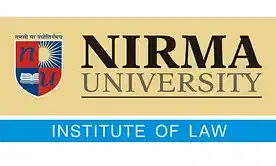To choose right NLU after CLAT 2025 can be done through proper research on factors like ranking, placement record, career prospects, etc. Some of the top NLUs are NLSIU Bangalore, NLU Delhi, NALSAR Hyderabad, and many more.
Choosing right NLU after CLAT 2026 involves research, career prospects, accreditation, ranking, infrastructure facilities, course preference, etc. Students can choose their National Law Universities that fits their academic objectives, professional aspirations, and personal preferences by carefully weighing these factors.
Making an informed decision will help to ensure a fulfilling and successful legal education and professional path. The admission process to the top NLUs in India is based on the CLAT 2026 entrance exam and the CLAT results.
Check out the details give below to know how to choose right NLU after CLAT 2026.
Key Factors to Choose Right NLU after CLAT 2026
Given that the top law universities in India are providing top-notch legal education, it's critical to consider several criteria to identify the NLU that best suits the objectives. To choose right NLU after CLAT 2026, below are some pointers that students must consider.
When considering the right National Law University (NLU) after CLAT 2026, it’s important to evaluate various factors to ensure that the chosen university aligns with your career goals, interests, and overall educational preferences. Here are the key factors to consider:
1. Ranking and Reputation
The academic reputation of an NLU plays a pivotal role in your overall learning experience. While all NLUs follow a similar curriculum, some universities are known for their strong faculty, rigorous academic environment, and research output.
National Law School of India University, Bangalore, National Law University Delhi, and National Academy of Legal Studies and Research (NALSAR) in Hyderabad, are consistently ranked among the list of NLUs in India.
- National Ranking: Consider the overall national rankings of NLUs based on various parameters like academic excellence, research output, faculty, and placements.
- Reputation in Legal Field: Some NLUs have a better reputation in specific fields of law (e.g., corporate law, constitutional law, environmental law). Check which NLU is known for the area of law you're most interested in.
2. Accreditation and Recognition
If students are interested in pursuing an international career or gaining exposure to global legal systems, consider NLUs with strong ties to international universities or law firms.
Some NLUs offer exchange programmes, internships abroad, or collaborations with foreign institutions.
- Bar Council of India (BCI) Accreditation: Ensure that the NLU is recognized by the Bar Council of India, which is necessary for practicing law.
- International Internship Opportunities: Some NLUs help students secure internships with international organizations, UN bodies, or international law firms.
3. Faculty and Teaching Quality
Look for universities with well-qualified professors, industry experts, and a strong emphasis on legal research.
- Experienced Faculty: Research the qualifications, experience, and specializations of the faculty members. The presence of reputed professors can greatly enhance the quality of your education.
- Student-Faculty Ratio: A low student-faculty ratio allows for more personalized attention and better interaction with professors.
4. Infrastructure and Facilities
The quality of infrastructure is another significant consideration. A well-equipped campus with modern amenities can enhance your academic experience. Some factors to look for include:
- Campus Infrastructure: Consider the facilities offered by the campus, such as libraries, moot courtrooms, research centers.
- Technological Integration: Access to online research resources, modern classroom setups, and legal databases (like Westlaw, and LexisNexis) is important for their studies and skill development.
- Hostels and Accommodation: Check the availability and quality of hostel facilities, as well as options for off-campus accommodation.
5. Placements and Internship Opportunities
A law school’s reputation and industry connections often determine the quality of placement opportunities and internships available to students.
- Placement Records: Check the placement statistics of the NLU, including the percentage of students placed, average salary, and the types of companies hiring graduates.
- Internship Programs: Look for a university that provides ample internship opportunities with law firms, NGOs, government bodies, and corporate houses.
- Alumni Network: A strong alumni network can help in job placements, mentorship, and career advice.
Also Read: Top Government Law Colleges in India
6. Specialization and Elective Courses
While all NLUs offer comprehensive law programs, some institutions may excel in specific areas of law, such as constitutional law, international law, corporate law, or human rights law.
- Specialization Areas: Depending on your interests, some NLUs offer specialized courses in fields like corporate law, criminal law, human rights law, etc. Ensure the NLU provides the areas you want to specialize in.
- Electives and Exchange Programs: Some NLUs offer exchange programs with foreign universities or opportunities to choose electives that align with your career goals.
7. Student Life and Extra-Curricular Activities
- Moot Court and Debates: Participation in moot courts, debates, and legal research enhances your practical knowledge and is highly regarded by employers.
- Clubs and Societies: Consider the presence of student-run legal forums, NGOs, or other student organizations that foster leadership and community engagement.
8. Location
Proximity to major legal hubs, such as courts, law firms, and corporate offices, can offer better opportunities for internships, research, and networking.
- Proximity to Legal Hubs: Being close to a major city with a strong legal presence (like Delhi, Mumbai, or Bangalore) can provide additional opportunities for internships, networking, and career growth.
- Climate and Cost of Living: Consider the climate, lifestyle, and cost of living in the area where the NLU is located.
9. Cost and Financial Aid
While some NLUs have relatively affordable fee structures, others may have higher fees, especially private universities. So the students are advised to consider a few points.
- Tuition Fees: Compare the tuition fees of different NLUs, as they can vary widely. Consider the overall cost of education, including hostel fees, books, and other expenses.
- Scholarships and Financial Aid: Check if the NLU offers scholarships or financial assistance programs to support students in need.
10. Cultural Fit
Campus culture plays an essential role in shaping your overall experience at an NLU. A healthy, inclusive, and vibrant campus environment can make your academic journey more enjoyable and enriching.
- Campus Culture: Each NLU has its own unique campus culture. Some may have a more formal academic environment, while others may be more informal and activity-based. Try to find an environment that aligns with your preferences and lifestyle.
- Diversity of Student Body: A diverse student body can enrich your learning experience, offering exposure to different perspectives and ideas.
Related How to Choose Right NLU After CLAT 2026 Article Links
Top NLUs in India Location-Wise
After knowing the steps to choose right NLU after CLAT 2026, students must check out the best National Law Universities (NLUs) in India that accept CLAT scores. There are 24 NLUs accepting CLAT marks.
Also Read: Top 10 CLAT Colleges in India
Affiliated CLAT Colleges in India
The list of top affiliated colleges is detailed in the table below:
| CLAT Colleges | City |
| Dr. Rajendra Prasad National Law University | Prayagraj, Uttar Pradesh |
| Alliance University | Bengaluru, Karnataka |
| Apeejay Stya University | Sohna, Gurugram |
| Arka Jain University | Jharkhand |
| ASBM University | Bhubaneshwar, Odisha |
| Asian Law College | Noida, Uttar Pradesh |
| BITS Law School | Mumbai |
| BML Munjal University | Gurgaon, Haryana |
| Fairfield School of Law | New Delhi |
| Galgotias University | Greater Noida, Uttar Pradesh |
| G.D Goenka University | Gurgaon, Haryana |
| GITAM University | Visakhapatnam, Andhra Pradesh |
| GLS University | Ahmedabad, Gujarat |
| Gopal Narayan Singh University | Rohtas, Bihar |
| IMS Unison University | Dehradun, Uttarakhand |
| Indian Institute of Management Rohtak | Rohtak, Haryana |
| Indore Institute of Law | Indore, Madhya Pradesh |
| Institute of Law, Nirma University | Ahmedabad, Gujarat |
| ITM University Raipur | Raipur, Chattisgarh |
| Jagran Lakecity University | Bhopal, Madhya Pradesh |
| JECRC University, Jaipur | Jaipur, Rajasthan |
| Lloyd Law College | Greater Noida, Uttar Pradesh |
| Mahatma Jyoti Rao Phoole University | Jaipur, Rajasthan |
| Mahindra University | Hyderabad, Telangana |
| Mody University of Science and Technology | Sikar, Rajasthan |
| NIMT College of Law | Kotputli, Jaipur |
| Quantum University | Roorkee, Uttarakhand |
| Raffles University | Alwar, Rajasthan |
| Sai University | Chennai, Tamil Nadu |
| SRM University | Delhi |
| SKVMs NMIMS, Kirit P. Mehta School of Law | Mumbai, Maharashtra |
| The ICFAI University | Jaipur, Rajasthan |
| UPES | Dehradun, Uttarakhand |
| Uttaranchal University | Dehradun, Uttarakhand |
| VMLS | Chennai, Tamil Nadu |
-
Top NLUs offer top-notch legal education in India. -
CLAT 2026 entrance exam determines NLU admissions. -
NLSIU Bangalore, NLU Delhi, NALSAR are top-ranked. -
BCI accreditation is essential for practicing law.














